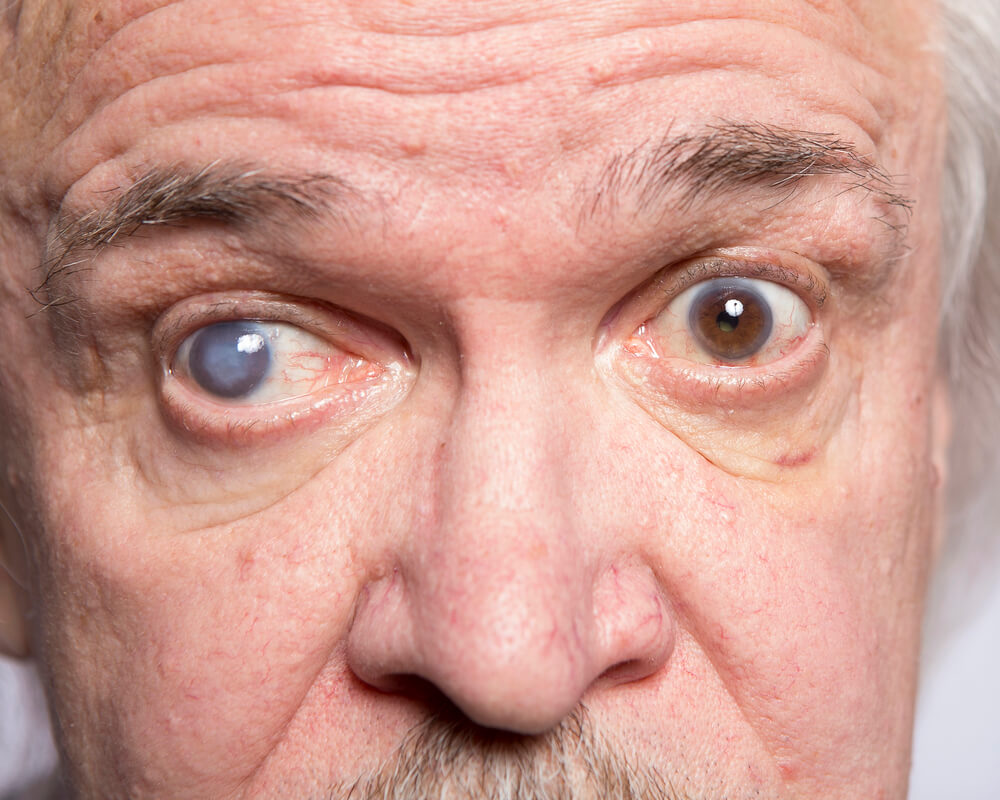
Cataracts are one of the most common eye conditions worldwide. They develop gradually and often begin without noticeable symptoms. Because they progress slowly, people sometimes wonder if cataracts can eventually cause blindness. The short answer is yes, untreated cataracts can impair vision to the point of functional blindness. The good news is that cataract treatment is available, and vision can be restored. Let’s walk through what you need to know.
A cataract forms when the lens inside your eye becomes cloudy. The lens is responsible for focusing light onto your retina, which allows you to see clearly. When the lens loses its transparency, light cannot pass through properly. The result is blurred vision, faded colors, or difficulty seeing in dim light.
Most people will develop cataracts as they age. While aging is the primary factor, health conditions, medications, or eye injuries can also play a role.
Can Cataracts Really Cause Blindness?
Yes, if left untreated, cataracts can lead to severe vision loss. Cataracts block light from reaching the retina. As they worsen, vision continues to decline. Over time, this can limit your ability to read, drive, or recognize faces. In advanced stages, cataracts may reduce sight so significantly that everyday tasks become impossible.
However, this form of blindness is considered reversible. Unlike damage caused by conditions such as glaucoma or macular degeneration, cataracts can be removed surgically.
Signs That Cataracts Are Progressing
Cataracts don’t always cause sudden changes. Instead, they typically progress over years. Watch for these common symptoms:
- Cloudy or blurry vision
- Dull or faded colors
- Sensitivity to light or glare
- Trouble seeing at night
- Needing brighter light for reading
- Double vision in one eye
- Frequent prescription changes for glasses
If these issues worsen, it’s a sign that cataracts are advancing. This is when you should schedule an appointment with your eye doctor.
When Do Cataracts Become Dangerous?
Cataracts themselves are not painful or harmful to your overall health. The danger comes from the way they restrict sight. If your vision becomes severely limited, everyday safety is at risk. Driving, climbing stairs, or even walking outdoors in bright sunlight can be hazardous.
Severe cataracts may also make it harder for your doctor to check the health of your retina. This means other eye problems, like diabetic eye disease, could go unnoticed.
Preventing Blindness from Cataracts
Although you cannot stop cataracts from forming, you can prevent them from leading to blindness. The key step is early detection. Regular eye exams allow your doctor to track changes in your lenses before vision loss becomes severe.
For adults over 40, an exam every one to two years is recommended. For adults over 65, annual exams are best. With timely checkups, cataracts are caught early, and treatment can be scheduled before daily life is affected.
Cataract Surgery: The Solution
Cataract surgery is one of the most common and successful procedures performed today. During surgery, the cloudy lens is removed and replaced with a clear artificial lens. Vision is typically restored quickly, and most people notice improvement within days.
Because the procedure is outpatient, you return home the same day. Recovery is usually smooth, with most patients resuming normal activities soon after.
Should You Wait to Have Surgery?
Some people hesitate, thinking cataracts must reach a certain point before removal. In truth, surgery can be performed as soon as cataracts interfere with daily tasks. You don’t need to wait until vision is severely limited. In fact, waiting too long may make the lens harder to remove, which can complicate the procedure.
The timing of cataract surgery should be based on how much cataracts impact your quality of life. If you’re struggling with glare while driving at night or finding it harder to read, talk to your doctor about surgery.
Will Surgery Fully Restore Vision?
Most patients regain clear sight after surgery. Colors appear brighter, details sharper, and daily activities easier. However, keep in mind that other eye conditions, such as glaucoma or diabetic retinopathy, may still affect vision. Cataract surgery corrects the lens, but overall eyesight depends on the health of the rest of your eye.
Your doctor will review your specific case and let you know what outcome you can expect.
Living With Cataracts Before Surgery
If your cataracts are mild and not yet interfering with daily activities, you may not need immediate surgery. There are steps you can take to manage vision in the meantime:
- Use stronger lighting for reading or working.
- Wear sunglasses that reduce glare.
- Update your glasses prescription regularly.
- Arrange your home to reduce fall risks if your vision becomes dim.
These steps don’t stop cataracts from worsening, but they may make living with them easier until surgery is necessary.
Cataracts can lead to blindness if ignored, but this does not have to be the outcome. With regular eye exams and timely surgery, cataract-related vision loss is reversible. The key is not to wait until sight is gone. Addressing cataracts early keeps you safe, independent, and able to enjoy clear vision well into the future.
Ready to take the next step towarda clearer vision? Schedule a consultation with SuraVision today to discuss your options and learn more about Cataract Surgery. Call us at 713-730-2020 or book your appointment online!

